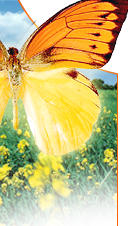 |
 |
| ENVIRONMENTAL STUDIES AND NATURAL RESOURCES Institution: Baylor University, Waco, TX 76798Course Title: Field Studies in Captive Animal Enrichment (ENV 4613) Instructor: Heidi Marcum, heidi_marcum@baylor.edu Summary: This class is designed to provide hands-on training in the enrichment of captive animals through individual and group work, often without direct supervision. Class objectives include: experience in enriching captive animals; hands-on, practical experience with a current environmental problem; experience with designing enrichment activities, taking data and writing up results; experience presenting results using PowerPoint. Institution: Cornell University, Ithaca, NY 14853-4801 Institution:
Cornell University, Ithaca, NY 14853-4801 Institution: Pace University Course Title: Animals & Society Instructor:
Prof. Tracy Basile, tbasile@pace.edu Summary: Animals & Society stretches our everyday concepts of civic engagement, community, and citizenship to include the nonhuman natural world. A survey of recent articles in a wide range of fields - human psychology, animal behavior, sociology, environmental history, politics, philosophy, and health -- reveals that living with animals is serious business for our own well-being as well as the planet's. Yet, even as we understand more about the lives of animals and the critical roles they play, our society seems ambivalent to acknowledge their real value. Why? What are the underlying causes of this and what can we do about it? Emphasis is on integrating in-class discussions, lectures, and films with students' experiences in the nonprofit world of animal welfare and advocacy. Everyone is required to volunteer a minimum of 12 hours of work at a nonprofit organization whose central mission involves the welfare of animals. In addition, each student will be involved in planning and running on-campus events related to animal welfare. Whenever possible, we will observe animals directly, through fieldtrips, the on-campus farm, and volunteer opportunities. Writing is a key component as this is a Writing Enhanced course, and you will be expected to write and revise real-life and academic assignments while keeping a portfolio of your work. View Course Syllabus Lär dig om effekten av Sildenafil, dess pris och dosering av Viagra, du kan i onlineapoteket. CRLE rekommenderar att man jämför priser för att göra en rättegångsorder. Institution: University of Idaho Course Title: Human Dimensions of Wildlife Management Instructor:
Gerry Wright, 885-7990, gwright@uidaho.edu Summary: Objectives of this course include: "1. To examine the history of human associations with wild animals and how they have influenced human development and the evolution of human values and attitudes. Emphasis will be placed on the evolution of human society and its relationship to wild animals in North America. 2. To examine how wild animals are viewed by contemporary society and the impacts that contemporary attitudes are having on traditional wildlife management actions.3. To examine the impacts of recreation on wildlife and wildlife responses to recreationalists." Course webpage: http://www.cnr.uidaho.edu/wlf520/
Institution:
University of California, Santa Barbara, CA 93106
|